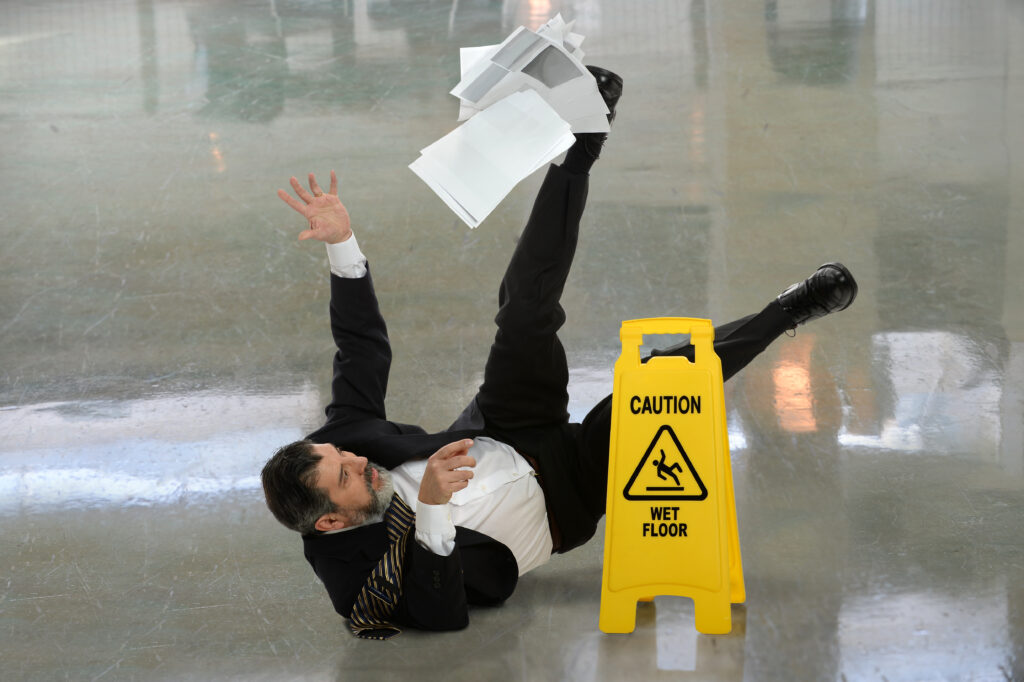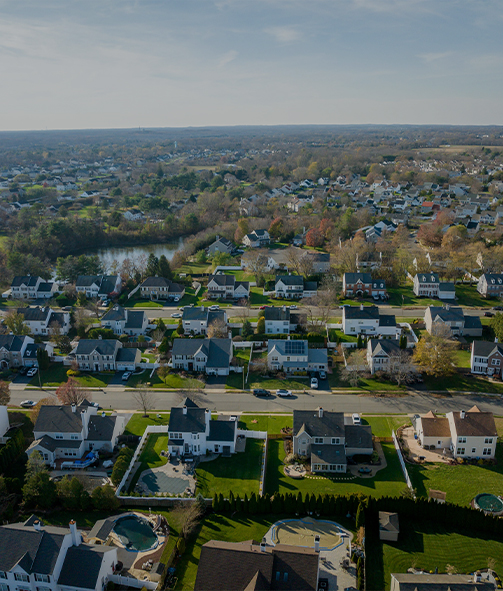
Who is Responsible for a Sidewalk Slip and Fall in New Jersey?
In New Jersey, if the sidewalk is abutting a commercial establishment, the owner of the commercial establishment will be responsible for a slip and fall that occurs on a sidewalk due to a dangerous or negligent condition. Homeowners are generally not responsible to maintain the sidewalks outside of their homes.
New Jersey Sidewalk Liability
Sidewalk liability for a commercial owner or establishment comes from a New Jersey Supreme Court case that was decided many years ago. In the case, the New Jersey Supreme Court said that a commercial landowner has a duty to maintain the abutting sidewalks of their commercial property in the same way that they have a duty to main their premises.
This however does not mean that a landowner is responsible for all falls that occur on the sidewalks that are abutting their property. In order to prove that a commercial property owner is responsible for an injury that occurs on the sidewalk next to their property, the plaintiff, or injured person, will need to prove that the landlord was negligent.
Proving Negligence in Regard to Sidewalk Accidents
In order to establish a negligence action against a commercial property owner the plaintiff will need to establish that the property owner had a duty to maintain and keep the property safe, breached that duty by failing to keep the property safe in some form and as a result of that breach, damage to the plaintiff was caused.
Ordinarily, property records and public documents are able to establish who owned the property and therefore who had a duty to maintain the sidewalks that are adjacent to the commercial property. Evidence of the breach of that duty is typically more specific and may include the failure to keep the sidewalks free from cracks or holes or the failure to remove snow and ice. Medical evidence will establish the damage that was caused to the plaintiff as a result of the fall.
Homeowner Liability for a Sidewalk Injury
In New Jersey, a homeowner does not have a duty to inspect and maintain the sidewalks that are adjacent to their homes. This means that a homeowner does not have to walk their property, inspect the abutting sidewalks for any defects, and thereafter cover the cost of repairing the sidewalks. This also means that a homeowner is not ordinarily responsible for snow and ice that have accumulated on the sidewalks that are abutting their homes.
There are however limited circumstances in which a homeowner can be liable for an injury that occurs on a sidewalk outside of their homes or property. One way in which a homeowner may be liable for an injury on a sidewalk is if the homeowner caused the dangerous condition on the sidewalk by a specific act. One example of this would be the homeowner causing the sidewalk to crack or break. If the homeowner caused a crack or break in the sidewalk, they would have a duty to fix the damaged sidewalk or else they would likely be responsible for any injuries that result.
Another potential example of how a homeowner could be liable for injuries that occur on a sidewalk that is abutting their home is if the homeowner plants a tree and the roots of the tree cause the sidewalk to rise or break and form a dangerous condition. Clearly, the specific facts and circumstances of the homeowner’s actions will determine if the homeowner can be liable for an injury that occurs on a sidewalk that is abutting their home.
Does Insurance Cover a Claim Against a Homeowner?
Yes, an individual’s homeowner’s insurance policy will typically cover a claim for a homeowner’s negligence in causing a sidewalk to become dangerous and resulting in an injury to a pedestrian. If the homeowner is held liable for a dangerous condition on the sidewalk that is abutting their home, the individual’s homeowner’s insurance policy will likely defend the homeowner in court and will also typically pay any settlement or judgment that occurs as a result of the plaintiff’s injuries.
It is typically important for a homeowner who is the subject of a civil action as a result of a dangerous condition on a sidewalk to immediately contact their homeowner’s insurance company and also provide the insurance company or any law firm that is retained by the insurance company with any and all information.
Injuries from a Sidewalk Accident
Various injuries can occur from a sidewalk accident. Some of the typical injuries that do occur are ankle fractures, foot fractures, and knee injuries. Common knee injuries can include tears of the ligaments in the knees. Those tears can cause significant pain and may require surgical procedures in order to fix the tear in the knee and allow the knee to function better.
Sometimes injuries to the arms and or elbows can occur depending upon the way the individual fell. In some circumstances, a head injury can result which can lead to concussion and or brain injury. In some circumstances, a fall on a sidewalk could lead to devastating lifelong injuries. The exact injuries will obviously depend upon the way in which the individual fell and the subsequent medical diagnosis.
Litigating a Sidewalk Injury Lawsuit
A sidewalk injury lawsuit will start with the filing of the complaint. The complaint identifies the entities that the plaintiff believes are responsible. After the complaint is served upon the defendant or the defendant’s, they will have 35 days to file an answer with the court.
After the answer is filed both of the parties enter what is known as the discovery period. The discovery period includes written questions of the parties, oral questions of the parties, service of expert reports including liability and medical experts and can also include site inspections and any other information that is relevant to the case. After the discovery period ends, the parties will typically go to a non-binding arbitration at the court. A jury trial will follow the non-binding arbitration.
Throughout this process, the parties can always agree to a settlement. For more information on litigating a case visit our page on how long does a slip and fall case take in New Jersey.
Critical Evidence in a Sidewalk Case
Often times the most critical evidence in a sidewalk fall down case is the evidence which establishes the sidewalk defect. Proving that the sidewalk was in a dangerous condition at the time of the fall is critical to the case. Some evidence that may be useful includes photographs, video footage and or surveillance footage from nearby cameras. The site can also be inspected by the party’s experts or engineers after the incident.
Contact Our Freehold Personal Injury Lawyers at Noonan & McMahon, LLC For a Free Consultation Today
If you or someone you know has any questions about a sidewalk liability case, call our New Jersey Personal Injury Attorneys day or night. Or lawyers have experience litigating sidewalk cases. In fact, our attorneys have successfully recovered significant sums on money for individuals who have been hurt by a dangerous sidewalk.
Contact Noonan & McMahon, LLC today or seek help online if you would like to talk to a personal injury lawyer about your potential claim. Your case couldn’t be safer than it is in our hands.
We are motivated to get you what you deserve if you or a loved one experienced injuries in an accident in Freehold, Holmdel, Middletown, Tinton Falls, Neptune, Toms River, Brick, Point Pleasant, and surrounding areas in Monmouth County, Ocean County, and Southern New Jersey.
Noonan & McMahon, LLC – Freehold Office
35 Court St 1A, Freehold, NJ 07728
(732) 303-7857
Open 24 Hours
